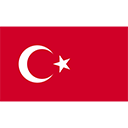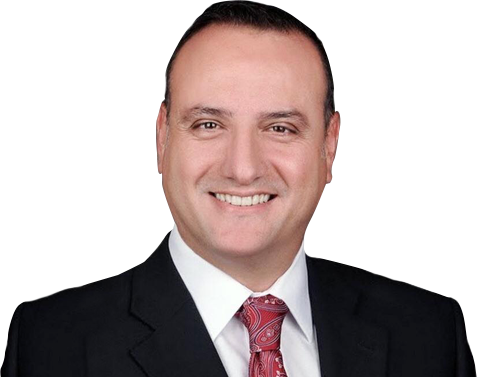
Sleeve Gastrectomy (SG) has become the most prefered obesity surgery both by the surgeons and patients. The main reason for this is; its short learning curve, short operation time, comparable efficacy with gastric bypass. Also Sleeve Gastrectomy (SG) does not compromise intestinal integrity and no malabsorptive problems are seen. This allows patients to use less supplementations in a limited time up to 6-12 months.
The reports reviel that Sleeve Gastrectomy (SG) has almost the same weight loss in short term with RYGB (Gastric Bypass). For that reason Sleeve Gastrectomy (SG) numbers annually had exceeded gastric bypass both in USA and Europe.
Revision Indications for Sleeve Gastrectomy?
- Weight Regain/Weight Loss Failure
- Stenosis, Disphagia (Painful Swallowing)
- Reflux (heartburn due to gastric content)
Weight Regain after Sleeve Gastrectomy (SG)?
The first statement for Sleeve Gastrectomy (SG) should be:
YOU CAN NOT ACHIEVE LIFE TIME WEIGHT CONTROL WITH ONLY SLEEVE GASTRECTOMY!
It is obvious that Sleeve Gastrectomy (SG) is a purely restrictive surgery just like adjustable gastric banding; and it is only effective to solid food. This gastric volume restriction allows a patient to eat very small portions of meal. However there is no control of absorption of high calorie soft foods and liquids. If a patient continues to take sweets, chocolate, high calorie drinks like alcohol, whipped creamy drinks, then he/she will not have any feeling of restriction and will regain weight.
Another reason for weight regain is the deformation and enlargement of gastric pouch. as the time pass, the gastric Wall tends to tolerate greater amounts of meals due to increasing volume. That’s why the most effective restriction time interval of first 1,5-2 years after surgery is called the “honeymoon period” for sleeve gastrectomy. After 2 years the increase in portions be more viable.
The Facts and The Myths About Sleeve Gastrectomy
Myth: The feeling of hunger permenantly goes away after sleeve gastrectomy.
FACT: The loss of hunger is temporary. The life style modification is a must.
The Sleeve Gastrectomy (SG) removes the great body of ghrelin producing cells lying in the fundus part of the stomach. This causes prompt decrease in Ghrelin levels of the body leading to strong supression of hunger in more than 90 % of patients. However this is not a long duration effect. Because the ghrelin is also secreted from hypophysis and ε (epsilon) cells of pancreas in normal physiology. As the ghrelin levels decrease immediately after sleeve gastrectomy, the brain activates these production regions to equilibrate the homeostasis of ghrelin levels. Altough the patients experience the loss of hunger after surgery, many ofbthem starts to feel it again after 6-12 months. Its important for every patient to remember that loss of hunger is permanent and each patient must modify their own daily diet in a healty path while they still have less feeling of hunger with sleeve. If one can not stay away sweets, starch and fat; than weight regain can easily happen after one year.
Myth: Almost 75-90 % of the stomach is resected. No significant enlargement can happen. You can never regain all the weight back!
FACT: Altough the restriction is strong, even mild increase in volume can result with severe weight regain. If sugar and fat increases in meal, 100 % weight regain becomes possible.
Sleeve Gastrectomy forms a narrow tube shaped pouch aproximately 100-120 cc in volume. This means up to 90 % of reduction. This allows the patient to have a full satiety with tiny bites. This restriction is mainly in the entrance of your new stomach, named as cardia. As the times pass, this region of the stomach may enlarge to let the patients eat more. Especially not avoiding calorie foods may lead to quick weight regain.
Myth: Sleeve Gastrectomy leaves a very small pouch, so any thing can be eaten as it will be in small bites!
FACT: Sleeve Gastrectomy is purely restrictive. So it is mainly effective to solid food. If high calorie, sugar and fat rich liquids or soft foods are consumed, then weight regain will definitely happen!
Sleeve Gastrectomy can only limit the amount of solid food you take. It has no control over liquids that will pass easiliy with out forming a feeling of fullness. However any food that passes stomach and enters small intestines is fully absorbed. So if the patients start to addict sweets and fats, they can easily face the weight regain in a short time.
Unfortunately there are false beliefs like a sleeve patient can eat everything in small portions without forming a risk. This is completely unreal and false. A patient can hardly eat a small meatball or a small bite of beef in the very early times of the operation; however any patient can easily meltdown plenty of bites of chocolate in their mouth in a very short time but feel no discomfort. This shows that, liquids easily pass through and if thay are rich in calorie like sweets than anybody can regain significant weight.
There is no malabsorption after Sleeve Gastrectomy! Anything that passes stomach is 100 % absorbed.
Selection of Revisional Surgery after Sleeve Gastrectomy Failure:
The type of revision or the need of conversion is related with the underlying problem.
Revision Surgery for Weight Regain
The patients who regain weight or fail to loose weight are mostly inappropriately selected patients who are sweet eaters that have bad eating habbits. For these patients, obviously the best thing is a metabolic surgery not a sleeve gastrectomy.
In our practice we select the type of revision according to the BMI before previous sleeve gastrectomy surgery:
Super Morbid Obesity (BMI>50 kg/m2) Duodenal Switch,
Morbid Obesity (BMI 40-50 kg/m2) Transit Bipartition,
Non Morbid Obesity (BMI<40 kg/m2) Ileal Interposition
Whatever the BMI is; our aim is to provoke the intestinal satiety hormones, mainly GLP-1 and PYY; to achieve a mostly non-restrictive, mainly hormonal based metabolic and in DS especially malabsorptive control of excess nutrition.
Duodenal Switch is the best option for super obesity to achieve a strong weight loss with the longest duration. A better quality of life with almost no diet restrictions, but to patients who comply with life time supplementations.
Especially Duodenoileal Interposition, a DS derived metabolic surgery, is a strong surgical technique armoured toughly by definite foregut supression (just as Gastric bypass and DS) and hindgut stimulation (as strong as DS) without leaving a blind closed stomach (as in gastric bypass) and forming no severe malabsorption (as in duodenal switch).
Revisional Surgery for Reflux after Sleeve Gastrectomy:
Sleeve Gastrectomy is a restrictive surgery, that forms a narrow gastric tube. This new gastric tube has an increased intraluminal pressure and may normally trigger some gastroesophageal reflux to some extend. This acceptable ruflux can easily be controlled with ppi’s and healty and proper eating habbits.
If the complaints such as heartburn, regurgitation, nausea and vomitting is persistent and immune to medical treatment, than every patient in this stiuation shold be evaluated with endoscopy, barium swallow x-rays and manometry to diagnose if there is a stricture in the gastric tube.
Revision To RYGB (Gastric Bypass):
Its the best option for reflux after sleeve gastrectomy. The success rates to control reflux is high. The main basis is to bypass the stricture or over functioning pylorus and form a wide drainage of gastric pouch to decrease the pouch pressure.
RYGB is one of the most popular weight loss procedures and also the most preferred revisional bariatric surgery after gastric band or sleeve gastrectomy failures. However RYGB is the most restrictive bariatric surgery and its efficiency completely depends on the “magical” measures of the pouch and the anastomosis. As the time passes and the deformation takes place, the restriction disolves and we face a significant amount of weight regain also after RYGB.
The only indication for me is reflux after sleeve gastrectomy to plan a revision to RYGB. As a phylosophy, l do not recommend a revision to RYGB for a weight regain after sleeve gastrectomy. To put it straight, if a patient regained weight with a restrictive surgery, its not the best thing to do a “more” restrictive alternative.
Our experience, as parallel to the common sense, shows that its almost impossible to achieve significantly better weight loss with RYGB, rather than a sleeve gastrectomy. If a patient has some technical insufficiency such as large fundus and a hiatal defficiency, then we choose fundus resection with hiatal repair which successfully fixes the reflux and weight loss failure in one session.
Revisional Surgery for Disphagia and Stricture After Sleeve Gastrectomy
The most common area of stricture after sleeve gastrectomy is the level of incisura angularis where the stomach naturally has a curve. If the staple line is not away from this point, than a stricture might happen in following weeks. These type of strictures mainly develop due to increased scar tissue at that region.
Difficulty in swallowing, pain in swalowing (disphagia), food coming to mouth after swallowing (regurgitation), nausea and vomitting might be some symptoms of stricture. The route of diagnosis is endoscopy and barrium swallow tests to localise the level of stricture.
The first level treatment option should be “endoscopic balloon dilatation”. The results mostly are successful with ballon dilatation. Repetaing applications of endoscopic balloon dilatations might be needed for tendency of narrowing.
Patients who are non responsive to endoscopic balloon dilatation, “Endoscopic Stent Application” is the next step of treatment. The experience of the physician is very important in timing and selection of stent type. If the balloon can not give efficient dilatation in 2-3 trials, then stent should not be postponed in order not tol et the stricture become fibrotic.
Surgical revision is indicated for patients who do not respond to endoscopic treatments. The best option for revision for stricture after sleeve gastrectomy is RYGB (gastric bypass). The strictural part (sometimes with the rest of the stomach) can be resected or bypassed. A new path fort he gastric pouch is formed with a liberate gastrojejunostomy anastomosis will be enough to solve the stricture problem whilst preserving the weight loss achieved.
Surgical correction with revisional gastric bypass surgery is 100 % effective for stricture.
Laparoscopic Sleeve Gastrectomy Versus Roux-Y-Gastric Bypass for Morbid Obesity-3-Year Outcomes of the Prospective Randomized Swiss Multicenter Bypass Or Sleeve Study (SM-BOSS).
Peterli R, Wölnerhanssen BK, Vetter D, Nett P, Gass M, Borbély Y, Peters T, Schiesser M, Schultes B, Beglinger C, Drewe J, Bueter M.
Ann Surg. 2017 Mar;265(3):466-473. doi: 10.1097/SLA.0000000000001929.
Revision of primary sleeve gastrectomy to Roux-en-Y gastric bypass: indications and outcomes from a high-volume center.
Casillas RA, Um SS, Zelada Getty JL, Sachs S, Kim BB.
Surg Obes Relat Dis. 2016 Dec;12(10):1817-1825. doi: 10.1016/j.soard.2016.09.038.
PMID: 27887931
From Complex Evolving To Simple: Current Revisional And Endoscopic Procedures Following Bariatric Surgery.
Zorron R, Galvão-Neto MP, Campos J, Branco AJ, Sampaio J, Junghans T, Bothe C, Benzing C, Krenzien F.
Arq Bras Cir Dig. 2016;29Suppl 1(Suppl 1):128-133. doi: 10.1590/0102-6720201600S10031. English, Portuguese.
PMID: 27683794 Free PMC Article
Switzer NJ, Karmali S, Gill RS, Sherman V.
Surg Clin North Am. 2016 Aug;96(4):827-42. doi: 10.1016/j.suc.2016.03.004. Review.
PMID: 27473804
Weight loss, weight regain, and conversions to Roux-en-Y gastric bypass: 10-year results of laparoscopic sleeve gastrectomy.
Felsenreich DM, Langer FB, Kefurt R, Panhofer P, Schermann M, Beckerhinn P, Sperker C, Prager G.
Surg Obes Relat Dis. 2016 Nov;12(9):1655-1662. doi: 10.1016/j.soard.2016.02.021.
PMID: 27317599
Long-Term Results of Laparoscopic Sleeve Gastrectomy for Morbid Obesity: 5 to 8-Year Results.
Gadiot RP, Biter LU, van Mil S, Zengerink HF, Apers J, Mannaerts GH.
Obes Surg. 2017 Jan;27(1):59-63. doi: 10.1007/s11695-016-2235-8.
PMID: 27178407
Secondary surgery after sleeve gastrectomy: Roux-en-Y gastric bypass or biliopancreatic diversion with duodenal switch.
Homan J, Betzel B, Aarts EO, van Laarhoven KJ, Janssen IM, Berends FJ.
Surg Obes Relat Dis. 2015 Jul-Aug;11(4):771-7. doi: 10.1016/j.soard.2014.09.029.
PMID: 25769402
Laparoscopic diverted resleeve with ileal transposition for failed laparoscopic sleeve gastrectomy: a case report.
Çelik A, Ugale S, Ofluoğlu H.
Surg Obes Relat Dis. 2015 Jan-Feb;11(1):e5-7. doi: 10.1016/j.soard.2014.09.010.
PMID: 25578286
Residual fundus or neofundus after laparoscopic sleeve gastrectomy: is fundectomy safe and effective as revision surgery?
Silecchia G, De Angelis F, Rizzello M, Albanese A, Longo F, Foletto M.
Surg Endosc. 2015 Oct;29(10):2899-903. doi: 10.1007/s00464-014-4017-5.
PMID: 25480629
Biliopancreatic diversion with duodenal switch.
Marceau P, Hould FS, Simard S, Lebel S, Bourque RA, Potvin M, Biron S.
World J Surg. 1998 Sep;22(9):947-54.
 English
English Turkish
Turkish

